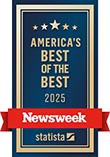Comfort Keepers®
Media Center

-
October 7, 2025
How Technology Is Redefining In-Home Care
-
September 24, 2025
PocketRN and Comfort Keepers® Announce National Strategic Partnership to Deliver CMS' GUIDE Dementia Care Model
-
August 27, 2025
Comfort Keepers® Named Among Top Home-Care Services for Seniors & Disabled in America’s Best of the Best Rankings From Newsweek
-
August 26, 2025
The Top 10 Benefits of Owning A Comfort Keepers® Franchise
-
August 25, 2025
Why Invest In A Comfort Keepers® Franchise
-
August 13, 2025
How a Financial Strategist Built a Flourishing Purpose-Driven Business with Comfort Keepers®
-
June 06, 2025
Comfort Keepers® Expands in Seattle with New Franchisees John and April Luethe
-
May 25, 2025
Comfort Keepers® Expands to Chattanooga with Purpose-Driven In-Home Senior Care
- Why Comfort Keepers?
- About Comfort Keepers
- Executive Team
- Testimonials
- Training & Support
- Ongoing Support
- Marketing Support
- Caregiver Recruiting
- Your Support Team
- Industry Terms
- Territories
- Why a Home Care Franchise?
- Home Care vs. Home Healthcare
- Senior Care Industry Outlook
- Why Franchising?
- Contact Us
- Request Information
- Back to Top
©2025 CK Franchising, Inc.
This information is not intended as an offer to sell, or the solicitation of an offer to buy, a franchise. It is for informational purposes only. We will not offer you a franchise in states where registration is required unless and until we have complied with applicable pre-sale registration or filing requirements in your state (or have been exempted therefrom) and a Franchise Disclosure Document has been delivered to you before the sale in compliance with applicable law.
AUV based on Item 19 of 2024 Franchise Disclosure Document. Your results may differ. There is no assurance that you will do as well.









